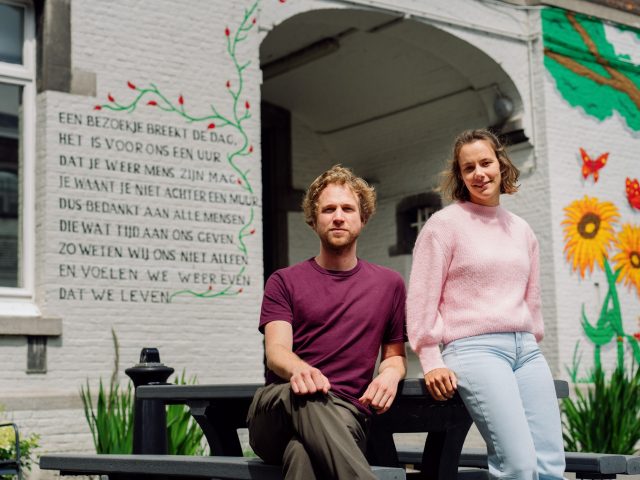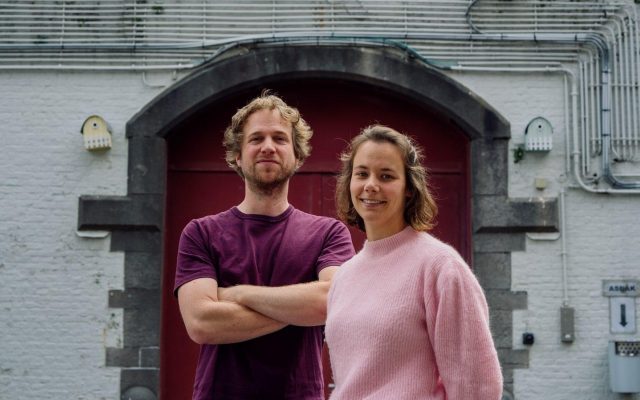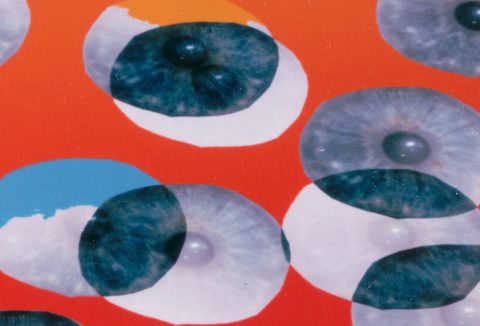- Vonk
- Interview
Thomas Baeckens and Sara Delaere on Barzakh
Wed, Jul 24, 2024

The performance Barzakh is being created in close collaboration with people in detention in the prisons of Antwerp and Ghent. An indispensable link in this process is Thomas Baeckens and Sara Delaere of the non-profit organization De Rode Antraciet. We met them for a conversation at the Begijnenstraat prison in Antwerp.
It’s not your typical workplace, and every morning, Thomas Baeckens and Sara Delaere have to go through several security checks and pass through multiple secure doors. Thomas has his office in the heart of the Antwerp prison in Begijnenstraat, while Sara works at the detention center at Nieuwe Wandeling in Ghent. Both work for De Rode Antraciet, with the title of "sports and culture officer." Over coffee and cookies on a sunny Tuesday morning in June, they shared what their work entails.
"The name De Rode Antraciet (The Red Anthracite) suggests the image of a glowing piece of coal: light in a dark place, warmth in a cold space. That's what we aim to provide. We are present in all Flemish and Brussels prisons and try to offer sports and culture in the broadest sense to people in detention. This ranges from organizing game nights to collaborating on an opera production – and everything in between."
"We try to involve the people in detention as early as possible in organizing our activities, starting from what they’re interested in. That’s not easy in a context where people often feel unheard. Many are no longer used to taking initiative, so it takes some time. But it works: for example, some individuals give sports instruction or chess lessons to their peers."
"Many of our initiatives provide a moment of distraction, helping people in detention to take their minds off things. A project like Barzakh can mean a lot in someone’s life."
42,616 hours of sports and culture
It’s proudly displayed in Sara and Thomas’ email signatures: in 2023, De Rode Antraciet organized 42,616 hours of sports and culture in Flemish and Brussels prisons. "We do this because we believe that people in detention have the same rights as everyone else. The only punishment imposed on them is the deprivation of liberty; sports and culture are also their fundamental rights. We also believe that sports and culture create connection. Working here has made us realize the true value of relaxation in life. Our approach isn’t therapeutic, but especially in uncertain and stressful times – like being in prison – this outlet is essential. We receive a lot of feedback and often have to turn people away due to demand."
When we ask how Sara and Thomas motivate people to participate in their activities, they smile. "The prison is a hopelessly non-digital world, so it’s still done the old-fashioned way: we make paper flyers that are distributed in the cells. People can then let us know they want to participate via a report card, a kind of internal mail, and then things start rolling."

"It was an intense journey," say Thomas Baeckens and Sara Delaere, who observed from the sidelines, "but incredibly enriching. People engaged fully, and Thomas Bellinck took the time to really talk in-depth with them to create the performance. He did a great job involving everyone, including by speaking to them in various languages. It’s amazing how many languages Thomas knows – he only had to bow out at Mandarin… (laughs). The participants really appreciated that. Also, the opportunity to express their critical views on their situation was one of the major draws of the project. We’re really excited to see the results of the many workshops."
The impact of a project like Barzakh goes beyond the prison walls, Thomas and Sara explain. "We have a similar project with Voetbal Vlaanderen (Football Flanders), where people in prison can train to become youth football coaches. Afterward, they can intern at a football club. This project has been running for several years now and has produced very positive results. Some individuals are now effectively coaching teams of young players. In the same way, we hope that people will carry Barzakh with them, even after they’re released. That gives us so much satisfaction. Many of our initiatives offer a moment of distraction, helping people in detention to take their minds off things. A project like Barzakh can mean a lot in someone’s life."

